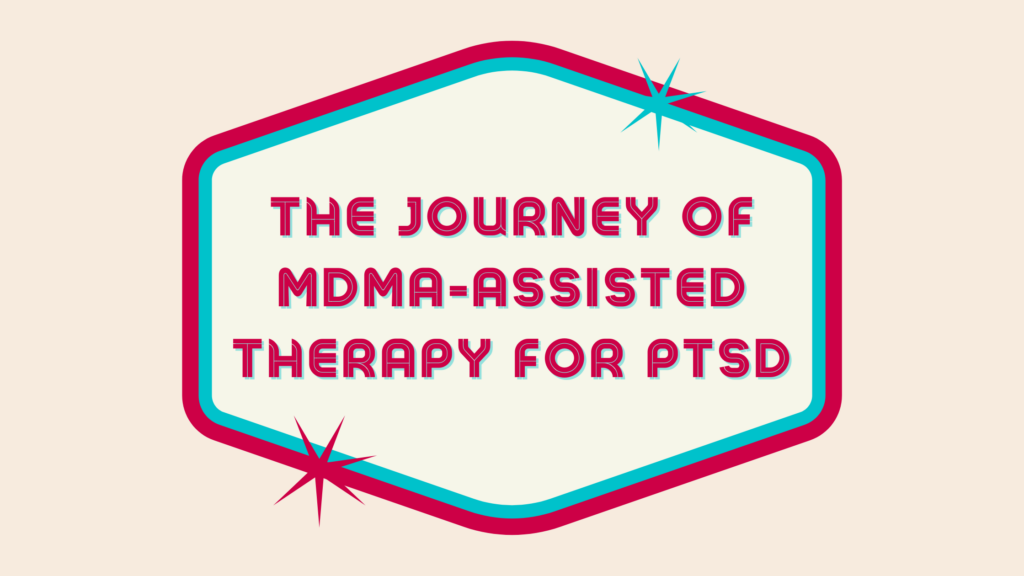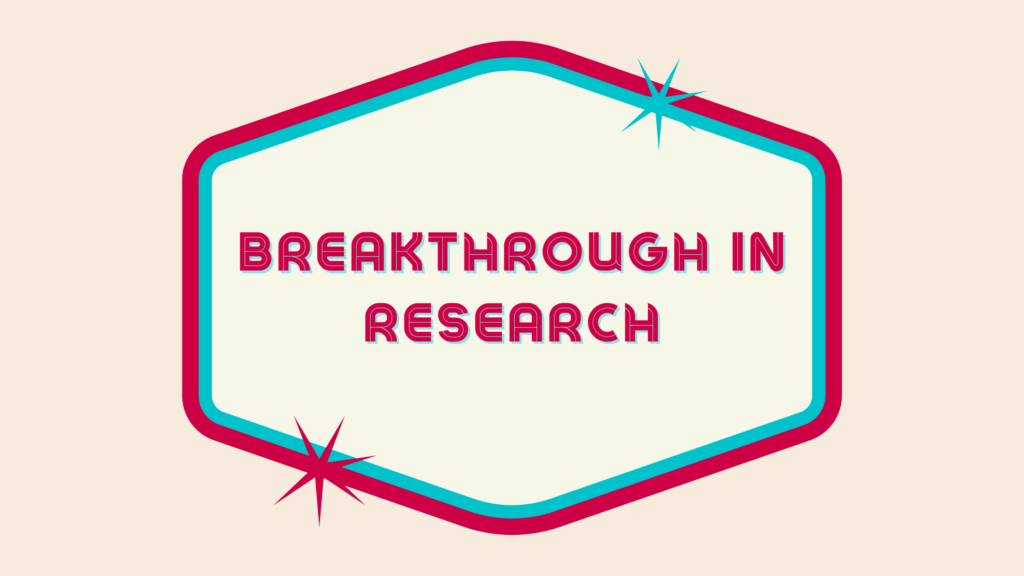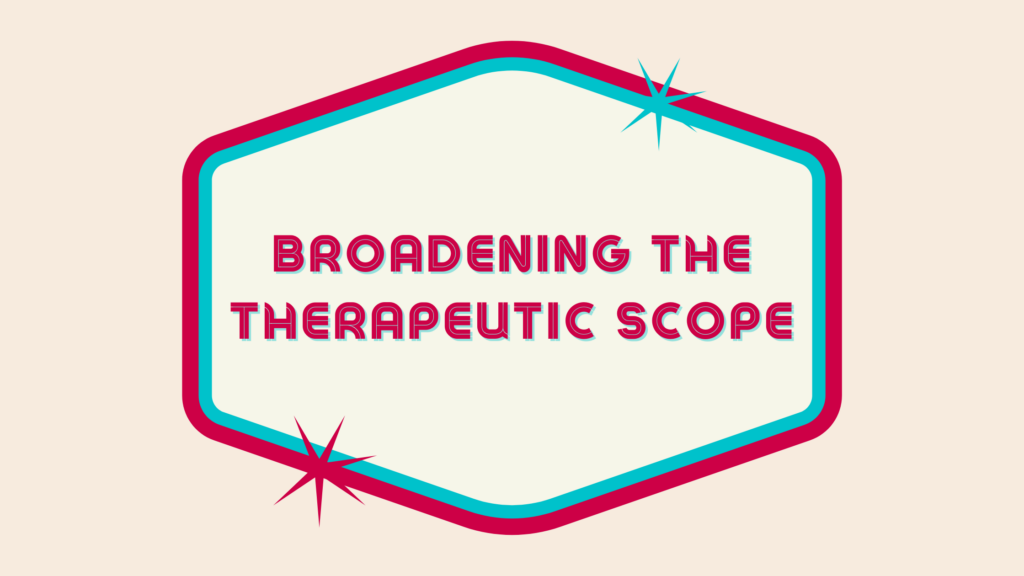
Welcome to a groundbreaking moment in the world of mental health treatment! As we stand on the cusp of what could be a revolutionary change in psychotherapy, it’s an exciting time to explore the promising horizon of MDMA-assisted therapy for PTSD. This therapeutic approach, which was once on the fringes of medical research, is now poised for potential FDA approval, marking a significant milestone not only for those championing psychedelic-assisted therapies but also for millions suffering from PTSD.
The Multidisciplinary Association for Psychedelic Studies (MAPS) has been at the forefront of this transformative journey. Their relentless pursuit through rigorous MAPS MDMA clinical trials has brought us to a pivotal moment: the submission of a New Drug Application to the FDA. This step is not just about a single drug or treatment; it’s about redefining our approach to mental health care, breaking barriers, and offering hope where traditional therapies have fallen short.
Early History and Rediscovery of MDMA
The Unfolding Story of MDMA From Obscurity to Therapeutic Potential
The journey of MDMA, from its synthesis to its emergence as a potential therapeutic tool, is as fascinating as it is complex. This odyssey began over a century ago, taking us from the laboratories of early 20th-century pharmacology to the heart of modern psychotherapeutic innovation.
The Origins: Synthesis and Early Research
- The Birth of MDMA in 1912: MDMA, known scientifically as 3,4-methylenedioxymethamphetamine, was first synthesized in 1912 by the German pharmaceutical company Merck. Interestingly, the compound was not initially intended for therapeutic use, and its psychoactive properties were not immediately recognized.
- 1950s – Governmental Interest and Research: Fast forward a few decades, and MDMA sparked interest in the U.S. government during the 1950s. Although details remain sparse, this period marked the beginning of scientific curiosity in MDMA’s potential effects on the human psyche.
Rediscovery and Initial Therapeutic Use
- 1970s – A New Hope for Psychotherapy: The rediscovery of MDMA by the psychedelic therapy community in the 1970s marked a turning point. Pioneering therapists began to explore its use as an adjunct to psychotherapy, valuing its ability to enhance communication and empathy in therapeutic settings.
- A Dual-Edged Sword: However, alongside its therapeutic exploration, MDMA found its way into non-medical settings. Its use in parties and recreational contexts began to overshadow its therapeutic potential, leading to growing concerns about its safety and misuse.
The Path to Criminalization
- 1985 – A Controversial Decision: Despite ongoing efforts by some therapists and researchers to preserve MDMA’s therapeutic use, the drug was criminalized in the United States in 1985. This decision, fueled by concerns over recreational use and potential abuse, effectively halted most therapeutic research and left MDMA in a state of legal and scientific limbo.
In this early chapter of MDMA’s history, we see a story of discovery, hope, and controversy. It sets the stage for the emergence of MAPS and the dedicated efforts to rehabilitate MDMA’s image from a misunderstood substance to a potential lifeline for those suffering from PTSD.

Establishment of MAPS and Early Struggles
Rick Doblin and the Founding of MAPS
The story of MDMA’s therapeutic potential takes a significant turn with the establishment of the Multidisciplinary Association for Psychedelic Studies (MAPS). This is marked by determination, vision, and a commitment to overcoming regulatory hurdles.
Founding of MAPS
- 1986 – A Visionary Step: In the shadow of MDMA’s criminalization, Rick Doblin founded MAPS with a bold mission: to validate and legalize the therapeutic use of MDMA. Doblin’s vision was not just about MDMA but about changing the landscape of mental health treatment through scientific research and evidence-based advocacy.
- The Mission: MAPS was established to develop legal contexts for beneficial uses of psychedelics and marijuana. The organization aimed to bridge the gap between science and stigma, focusing on rigorous, FDA-approved research to explore MDMA’s potential as a therapeutic tool.
- Navigating the Regulatory Maze: The journey was not smooth. Initial applications for research submitted by MAPS between 1986 and 1988 faced rejection by the FDA. These rejections symbolized the prevailing skepticism and regulatory barriers surrounding psychedelic research at the time.
- Persistence in the Face of Opposition: Despite these setbacks, MAPS persisted, advocating for scientific evaluation and clinical trials. Their efforts were a testament to the belief in MDMA’s potential to transform psychotherapy, particularly for conditions like PTSD that were challenging to treat with existing methods.
Laying the Groundwork for Future Success
- Building a Foundation: This period was crucial in laying the groundwork for future research. MAPS’ early efforts helped in slowly shifting the narrative around MDMA, setting the stage for the eventual acceptance and approval of clinical trials.
- Advocacy and Education: Apart from pushing for research approvals, MAPS engaged in extensive advocacy and educational efforts. They worked to demystify psychedelics, disseminating information on their potential therapeutic benefits and advocating for a scientific approach to drug policy.
In these early years, MAPS emerged as a beacon of hope in the seemingly insurmountable task of bringing MDMA-assisted therapy into the realm of accepted medical practice. Their dedication laid the cornerstone for the groundbreaking research that would follow.

Phase 1 Safety Study
The First FDA-Approved Safety Study
The early 1990s marked a pivotal moment in the history of MDMA research, as MAPS achieved a significant milestone that would lay the foundation for future clinical trials and research advancements.
FDA Approval for Phase 1 Safety Study
- 1992 – Turning the Tide: In a significant breakthrough, the FDA approved a Phase 1 safety study of MDMA, led by Dr. Charles Grob. This approval was a crucial step forward, signaling a shift in the regulatory landscape and a recognition of the potential therapeutic value of MDMA.
- The Study’s Aim: The primary objective was to assess the safety and pharmacological profile of MDMA in a controlled clinical setting. This study was vital in establishing a baseline for understanding MDMA’s effects in a therapeutic context.
Completion and Findings of the Study
- 1995 – Groundbreaking Insights: The study was completed in 1995 and yielded promising results. It indicated that MDMA could be safely administered in a clinical research setting, with manageable side effects. This was a monumental finding, contradicting the prevailing negative perception of MDMA as solely a harmful, recreational drug.
- Implications for Future Research: The successful completion of the Phase 1 study opened doors for more extensive clinical trials. It provided the necessary scientific backing to argue for MDMA’s potential as a therapeutic agent, particularly in treating psychological conditions like PTSD.
MAPS’ Role and Advocacy
- Continued Advocacy for MDMA Research: Following the study, MAPS continued to advocate for further research, using the study’s findings to bolster their case. They played a crucial role in disseminating the results and educating both the public and regulatory bodies about MDMA’s potential benefits.
- Building a Foundation for Clinical Trials: This period was instrumental in building a credible scientific foundation for MDMA-assisted therapy. The success of the Phase 1 study demonstrated that rigorous, methodologically sound research could reshape the conversation around psychedelic substances.
First FDA-Approved Clinical Trial for PTSD
The Groundbreaking Trial
The early 2000s witnessed a landmark event in the history of psychedelic-assisted therapy, as the FDA approved the first U.S. clinical trial of MDMA for the treatment of PTSD, marking a monumental shift in the perception and potential application of MDMA in mental health.
FDA Approval and Trial Setup
- 2004 – A Historic Approval: The FDA’s approval in 2004 for the clinical trial of MDMA-assisted therapy for PTSD was a historic moment. It represented a significant shift from the earlier stigmatization of MDMA to a recognition of its potential therapeutic value.
- The Trial’s Focus: This trial aimed to explore the efficacy of MDMA-assisted psychotherapy in treating patients with PTSD, a condition that was often resistant to conventional treatments.
Conducting the Trial and Publishing Results
- A Decade of Research and Findings: Over the next few years, the trial proceeded with careful scrutiny and rigorous methodology. The results, published in 2010, were groundbreaking. They showed that MDMA-assisted therapy could significantly reduce PTSD symptoms, offering hope to those for whom traditional therapies had failed.
- Implications for PTSD Treatment: The trial’s results were not just a win for psychedelic research but also for the broader field of mental health. They suggested a new, effective treatment pathway for PTSD, potentially transforming the lives of millions suffering from this debilitating condition.
MAPS’ Role and the Broader Impact
- Advancing the Cause: MAPS’ sponsorship and advocacy were instrumental in the trial’s initiation and success. Their commitment to scientific rigor and patient safety helped to ensure the trial’s credibility and acceptance within the medical community.
- Changing Perceptions: The success of this trial played a crucial role in changing public and professional perceptions about the therapeutic potential of MDMA. It opened the door to further research and began to dismantle the longstanding stigma associated with psychedelic compounds.
This first FDA-approved clinical trial for PTSD set a precedent for the potential of MDMA-assisted therapy. It was a beacon of hope for those struggling with PTSD and a testament to the power of perseverance, scientific rigor, and vision in overcoming long-standing biases and regulatory barriers.
Expansion of Clinical Trials
Broadening Horizons: Diverse Populations and New Settings
Following the success of the initial clinical trials, MAPS embarked on a mission to expand their research, exploring the efficacy of MDMA-assisted therapy across a range of populations and settings. This phase was crucial in demonstrating the versatility and broad applicability of this therapeutic approach.
Phase 2 Clinical Trials: A Diverse Approach
- Expanding the Research Scope: MAPS sponsored and conducted multiple Phase 2 clinical trials, focusing on MDMA-assisted psychotherapy for PTSD. These trials were designed to include a diverse range of participants, encompassing various demographics, backgrounds, and trauma experiences.
- Tailoring to Different Needs: By extending research to different populations, MAPS aimed to understand how MDMA-assisted therapy could be adapted to meet the unique needs of different groups, ranging from military veterans to survivors of sexual assault and others with chronic, treatment-resistant PTSD.
Integrating Varied Settings and Modalities
- Beyond Traditional Therapy Environments: The trials were not confined to conventional clinical settings. Some explored the therapy in environments more reflective of the participants’ everyday lives, offering insights into how setting influences therapeutic outcomes.
- Collaborations and Training: MAPS also collaborated with other researchers and institutions to enhance the trials’ effectiveness and reach. They focused on training therapists in the unique modalities of MDMA-assisted psychotherapy, ensuring a high standard of care and consistency across studies.
Gathering Comprehensive Data and Insights
- Building a Robust Evidence Base: The outcomes of these Phase 2 trials were instrumental in building a comprehensive understanding of MDMA’s therapeutic potential. They provided valuable data on efficacy, safety, long-term impacts, and potential for wider application in mental health treatment.
- Informing Future Research Directions: The diversity of these trials also helped identify new research questions and areas for further exploration, setting the stage for more specialized studies and adaptations of the therapy.
Through the expansion of clinical trials, MAPS demonstrated a commitment to a nuanced, inclusive approach to research. This phase not only reinforced the potential of MDMA-assisted therapy in treating PTSD but also opened up possibilities for its application in a wider array of mental health conditions.

Research Beyond PTSD: Exploring New Frontiers
MDMA Studies for Diverse Psychiatric Disorders
Recognizing the potential of MDMA beyond the treatment of PTSD, MAPS initiated studies to explore its efficacy in treating a range of other psychiatric conditions. This expansion of research reflects a growing understanding of the therapeutic possibilities of MDMA in diverse mental health contexts.
Social Anxiety in Adults on the Autism Spectrum
- A New Therapeutic Avenue: One of the notable studies initiated by MAPS focused on treating social anxiety in adults on the autism spectrum. This study was groundbreaking, as it addressed a condition for which there are few effective treatments.
- Study Goals and Methodology: The objective was to assess whether MDMA-assisted therapy could help reduce social anxiety symptoms, thereby improving quality of life and social functioning for individuals on the spectrum.
Anxiety in Patients with Life-Threatening Illnesses
- Addressing a Profound Need: Another significant area of research involved using MDMA-assisted therapy to alleviate anxiety in patients facing life-threatening illnesses. This approach aimed to address the deep existential and psychological distress often experienced in these situations.
- Potential Benefits and Outcomes: The study explored how MDMA, in conjunction with psychotherapy, could facilitate emotional processing, acceptance, and a reduction in fear and anxiety associated with facing mortality.
Extending the Therapeutic Horizon
- Implications for Mental Health Treatment: These studies signify a paradigm shift in the understanding and treatment of various psychiatric disorders. They highlight MDMA’s potential as a versatile therapeutic tool, capable of addressing a wide array of mental health challenges.
- Future Research Directions: The results of these studies could open doors to new treatment modalities and inspire further research into the use of MDMA and other psychedelics for mental health conditions beyond PTSD.
The expansion of MAPS’ research to include studies on different psychiatric disorders marks a significant stride in the field of psychedelic-assisted therapy. It underscores the importance of exploring new and effective treatment options for conditions that are often challenging to manage with conventional therapies.
FDA Greenlights Phase 3 Clinical Trials
A Crucial Milestone: Advancing Towards Therapeutic Legitimacy
The approval of Phase 3 clinical trials by the FDA in November 2016 represented a pivotal moment in the journey of MDMA-assisted therapy. This step was not just a procedural milestone but a strong indication of the shifting perception and potential acceptance of MDMA as a therapeutic tool.
The Significance of Phase 3 Approval
- A Major Step Forward: The approval of Phase 3 clinical trials was a significant achievement for MAPS and the broader community advocating for psychedelic-assisted therapy. It indicated that the FDA recognized the potential of MDMA-assisted therapy based on the promising results from earlier phases of research.
- Setting the Stage for Reclassification: Successful outcomes from Phase 3 trials could pave the way for the reclassification of MDMA, moving it from a Schedule I substance, denoting no accepted medical use, to a category acknowledging its therapeutic potential.
The Scope and Goals of Phase 3 Trials
- Expanding Research and Participant Base: Phase 3 trials typically involve a larger participant base and more diverse settings, providing comprehensive data on the efficacy, safety, and potential side effects of MDMA-assisted therapy.
- Final Hurdle Before Potential Approval: These trials are designed to solidify the evidence base, demonstrating the therapy’s effectiveness and safety to the satisfaction of regulatory authorities.
Implications for Mental Health Treatment
- A New Era in Psychotherapy: The approval of Phase 3 trials signals the potential for a significant shift in the treatment of mental health conditions, particularly PTSD. MDMA-assisted therapy could offer a new, effective treatment option for those who have not found relief through traditional methods.
- Changing Public Perception: This development also plays a crucial role in changing the public and professional narrative around psychedelics, shedding light on their therapeutic potential when used in a controlled, clinical setting.
The FDA’s greenlighting of Phase 3 clinical trials marks a crucial juncture in the acceptance and potential integration of MDMA-assisted therapy into mainstream mental health treatment. It’s a testament to the rigorous scientific research and advocacy efforts of MAPS and the broader psychedelic research community.

The Prospects of MDMA-Assisted Therapy
Reflecting on the Journey and Envisioning Tomorrow
As we approach the conclusion of this extensive exploration of MAPS’ efforts to reschedule MDMA for therapeutic use, it’s crucial to reflect on the journey thus far and look forward to the potential impact of this research on the future of mental health treatment.
A Journey of Persistence and Innovation
- Overcoming Challenges: The journey of MAPS and MDMA-assisted therapy is marked by overcoming significant scientific, regulatory, and societal hurdles. From the early struggles to gain FDA approval for initial studies to the groundbreaking Phase 3 trials, each step has been a testament to the persistence and dedication of researchers and advocates.
- Shifting Perceptions: This journey has also played a pivotal role in changing public and professional perceptions about psychedelics, moving away from stigma and towards a recognition of their potential therapeutic benefits.
The Impact of MDMA-Assisted Therapy
- Potential for PTSD Treatment: With the promising results from clinical trials, MDMA-assisted therapy stands to offer a new, effective treatment for PTSD, potentially transforming the lives of millions who suffer from this debilitating condition.
- Beyond PTSD: The exploration of MDMA’s use in treating other conditions, such as social anxiety in autistic adults and anxiety in patients with life-threatening illnesses, opens the door to a broader application of this therapy in mental health.
Looking Ahead at What the Future May Hold
- Potential FDA Approval and Rescheduling: The successful completion of Phase 3 clinical trials could lead to FDA approval and rescheduling of MDMA, marking a historic shift in how psychedelic substances are viewed and utilized in medical treatment.
- Wider Implications for Mental Health Care: This could herald a new era in mental health care, where MDMA-assisted therapy is integrated into standard therapeutic practices, offering new hope and avenues for treatment.
The Role of Continued Research and Advocacy
- Need for Ongoing Research: Despite the advancements, continued research is essential to fully understand MDMA’s therapeutic potential, optimal treatment protocols, and long-term effects.
- Advocacy for Access and Education: As research progresses, ongoing advocacy and education will be crucial in ensuring access to MDMA-assisted therapy for those who need it and in maintaining rigorous standards of practice.
The journey of MDMA-assisted therapy, championed by MAPS and supported by the scientific and medical community, stands as a beacon of hope and innovation in the field of mental health treatment. As we look to the future, the potential for MDMA to change lives and reshape therapeutic approaches is both exciting and profound.
Embracing a New Paradigm in Mental Health Treatment
The Transformative Impact of MAPS’ Efforts on MDMA-Assisted Therapy
As we conclude this comprehensive exploration of the history and impact of MAPS’ efforts to reschedule MDMA for therapeutic use, it’s important to reflect on the key takeaways and the potential paradigm shift in mental health treatment.
A Milestone in Mental Health Research
- Revolutionizing PTSD Treatment: MAPS’ pioneering research has brought MDMA-assisted therapy to the forefront of potential treatments for PTSD, offering new hope and possibilities for those affected by this challenging condition. The research into MDMA’s therapeutic potential extends beyond PTSD, potentially revolutionizing the treatment of various mental health conditions and offering more holistic and effective therapeutic options.
Overcoming Stigma and Regulatory Barriers
- Changing Perceptions: The journey of MAPS and MDMA-assisted therapy has been instrumental in changing public and professional perceptions about psychedelics, demonstrating the importance of evidence-based approaches in re-evaluating long-held stigmas. The approval of Phase 3 clinical trials by the FDA is a significant achievement, highlighting the possibility of integrating psychedelics into mainstream medical practice under rigorous scientific scrutiny.
The Future of MDMA-Assisted Therapy
- Potential FDA Approval and Reclassification: Looking ahead, the successful completion of Phase 3 trials could lead to the FDA approval and reclassification of MDMA, fundamentally changing its availability for therapeutic use. The potential approval of MDMA-assisted therapy underscores the need for continued research, education, and advocacy to ensure safe, effective, and accessible treatment options for those in need.
A Call to Action
- Supporting Ongoing Research: The journey is far from over. Continued support for research and advocacy is essential to fully realize the potential of MDMA-assisted therapy. As we move forward, educating healthcare professionals and the public about the benefits and limitations of MDMA-assisted therapy will be crucial in ensuring its successful integration into mental health care.
To conclude, the efforts of MAPS and the broader scientific community in researching and advocating for MDMA-assisted therapy represent a significant leap forward in mental health treatment. This journey symbolizes a shift towards more compassionate, innovative, and effective approaches to mental health care, opening new doors for healing and recovery utilizing the emergence of psychedelic-assisted therapy centers.
